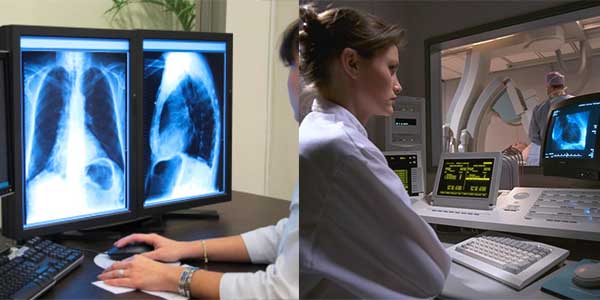Bachelor of Science in Imaging Technology ( BSc Imaging Technology)
[one_half][ads1][/one_half]Imaging Technology is the process of making radio-graphs (film records) of internal structures of the body. Imaging Technologists are health care professionals who create medical images of the body to help health care provides diagnose and treat illness and injury using X-rays, magnetic resonance imaging, computed tomography, sonography. The program provides basic knowledge of human anatomy and physiology for understanding human biology. The course helps to train the student to operate X-ray and other imaging equipment, perform all routine radio-graphic technique and produce images of good diagnostic quality with minimum radiation dose.
BSc Imaging Technology – Imaging Technologists also referred to as radiographers trained to produce X-ray films (radio-graphs) of parts of the human body for use in diagnosing medical problems, prepare patients for radio-logic examinations by explaining the produce (removing jewelry and other articles through which X rays cannot pass) and positioning patients so that the parts of the body can be appropriately radio-graphed.
BSc Imaging Technology Eligibility
Should have passed Senior Secondary (12th Standard / Intermediate) examination with Physics, Chemistry and Biology from Central Board of Secondary Education or any other examination recognized by R G U H S as equivalent.
Lateral Entry
Candidates who have secured a diploma in radiography from a board recognized by the Government or any other equivalent authority can gain entry to second year of the course.
Academic Year Commencement
August – September.
Course Duration
3 yrs & 6 months.
Scope
Medical imaging technology plays an important role in today’s health care system, and personnel with the knowledge and skills to perform diagnostic imaging procedures are in high demand. There is a wide variety of job opportunities in the medical imaging career field, along with plenty of avenues for specializing with different technologies. With experience and additional training, staff technologists may become specialists, performing CT scanning, MR, mammography, or bone densitometry. Experienced technologists may also be promoted to supervisor, chief radio-logic technologist, and , ultimately, department administrator or director.





